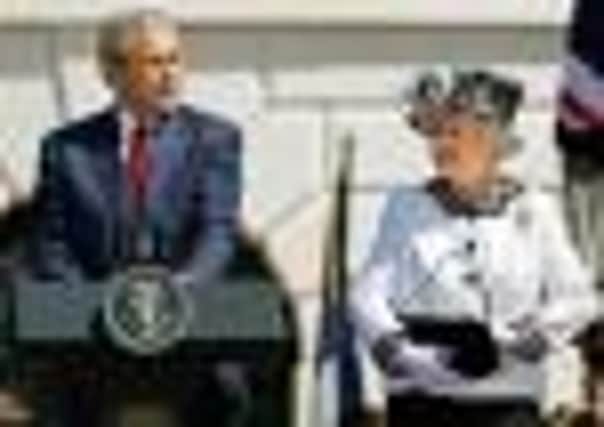Gerald Warner: Nation needs to speak up for the Queen’s English


There is a false perception of organisations and individuals that strive to maintain quality as representative of the “establishment”: on the contrary, they represent a cultural insurgency, since the commanding heights of the so-called establishment have long since been captured by the forces of barbarism. An instance of this misconception is the widespread use, as a synonym for the Queen’s English, of “BBC English”. You will search long and hard before you will find a more aggressive agent of illiteracy than the BBC. Last week’s Jubilee celebrations produced a rich crop of solecisms, of which “HRH the Queen” was just one much-ridiculed example. Nor is it any longer correct to describe the Queen’s English as “Received Pronunciation”, since it is not only not received, but positively repudiated, in the seats of contemporary power.
Although misuse of spoken and written English is mostly due to ignorance, the unlettered condition of today’s Britons was engineered. All the grammatical and syntactical errors that were drilled out of generations of schoolchildren became acceptable under an educational ideology that refused to correct mistakes, thereby denying children the improvement that has always been the raison d’être of education.
Advertisement
Hide AdAdvertisement
Hide AdThen came the gobbledegook of Management Speak, pushing envelopes, thinking outside the box and elevating morons to the influential positions in banks and government that enabled them to reduce us to our present situation.
When local councillors and government ministers speak of “new build”, when they mean the construction of new houses or public buildings, they imagine it makes them sound sophisticated. The same applies to the inane punctuation of every political statement, on any topic whatsoever, with the word “sustainable”. Even some blatant solecisms have an ideological motivation. “The voter may be trying to express their frustration…” is a frequent journalistic solecism whereby a singular subject is given a plural possessive adjective; its purpose, frequently, is to avoid the correct use of “his”, since that would be deemed “sexist”.
Political correctness has given a further impetus to illiteracy. A “chair” is a piece of furniture, not the presiding member of a committee. If its head is a woman, what is wrong with “chairwoman”? The answer is that it acknowledges the sex (not gender, which is a technical term in grammar) of the chairman and feminism is now so incoherent that it seeks to conceal rather than highlight female identity. The slang term “gay” is now incorporated into Acts of Parliament. The conscription of language by the PC lobby is unsurprising: Marxism has always been obsessed with semantics, on the cynical calculation that control of vocabulary inhibits the expression of ideas considered heterodox by totalitarian enforcers. Orwell’s Newspeak is a commonplace reality today, when “diversity” is the euphemism for enforced uniformity of opinion.
Mostly, though, it is sheer ignorance that is driving illiteracy. The ubiquitous practice of sending texts, in a language reminiscent of Ogham, has not noticeably improved the younger generation’s command of English. When the controversy over David Cameron’s exchanges with Rebekah Brooks revealed the meaning of the arcane letters “LOL”, for some Scots it cast a puzzling light on the inscriptions to be read on certain banners paraded through Larkhall in high summer.
In Scotland over recent decades, assertion of Scottish identity has been confused with proletarianisation. Inarticulacy is a badge of authenticity. The education system feeds that delusion: last year only 3 per cent of Scottish schools had at least half of their pupils pass three or more Highers. A report last year from Graham Donaldson, former chief inspector of education, acknowledged illiteracy among Scottish trainee teachers and suggested candidates should be given “diagnostic assessments” when applying for training places. A prominent academic commented that “a lot more has to be done during the university phase to develop their numeracy and literacy to much higher levels”.
That invites the question: how did they get into university with inadequate levels of literacy? The answer is obvious: inclusion innit. Scotland used to be a highly literate country; today we have sloughed off that elitist past to become inclusive, diverse and, above all, dedicated to equality. Forget those embarrassing examination results, the Curriculum for Excellence will soon sanitise all that. Meanwhile, if you want an update on the Queen’s English in Scotland, tune in to the deliberations of the Scottish Parliament. «